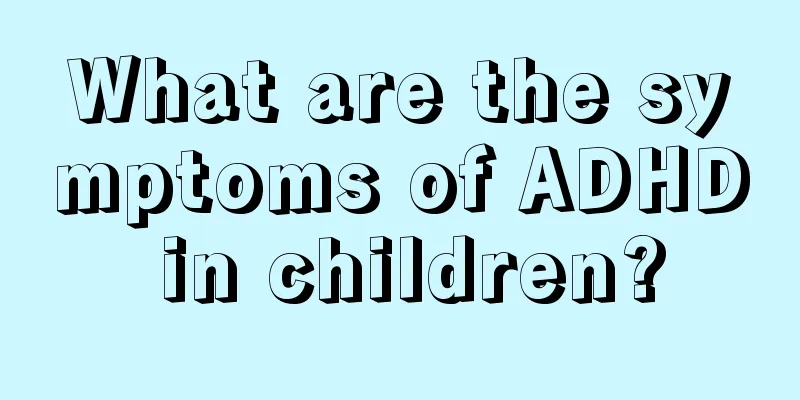What to do if children have vulvitis?

|
Many people are suffering from vulvitis. The main cause of this disease is the invasion of pathogens, or the vulva is adversely stimulated, which leads to inflammation of the vulva. The patient's vulva will become itchy, and there will be rashes. In severe cases, ulcers and even erosions may occur. Therefore, it is very harmful. If a child develops vulvitis, the following solutions should be taken. What to do if children have vulvitis? The cause of vulvitis in children may be that infants and young children wear open-crotch pants, which can easily be contaminated if they do not pay attention to hygiene. If the baby's diaper is not changed in time, it will cause urination and defecation irritation, which can cause skin infection, acute infectious disease, reduced systemic resistance, local uncleanliness, and easy infection. The pathogenic bacteria are mostly pyogenic bacteria, such as Staphylococcus, Streptococcus, and Escherichia coli. (1) Poor local hygiene of the vulva. The mothers and childcare staff do not pay attention to the cleanliness of the children's vulva, do not handle the bowel movements properly, or use highly irritating soaps and detergents, do not use pH4 feminine care liquid to clean the vulva, or wipe the anus with contaminated paper, allowing intestinal bacteria to invade the vagina and cause vaginitis. HuHiman studied 438 cases of vulvovaginitis in infants and young children and found that 68% were caused by the above-mentioned causes, of which 80% were found to have Escherichia coli during culture. (2) Foreign objects such as peanuts, beans, hairpins, pins, small stones, etc. are inserted into the vagina. Due to the damage to the vaginal epithelium caused by the foreign objects, secondary infection occurs. (3) Pinworm vulvovaginitis is not common under normal circumstances. It is caused by intestinal pinworms being transmitted into the vagina through feces; or by improper feces handling, which allows pinworm eggs to contaminate the young girl's vulva through the hands, clothes, toys, etc. of the baby's mother or childcare staff, causing inflammation. (IV) Secondary vulvar and vaginitis: After a young girl has an upper respiratory tract infection or a urinary tract infection, bacteria are directly transmitted into the vagina through dust and cause infection. (V) Specific vaginitis, Trichomonas or candidal vaginitis, is rare in infants and young children. Reason: This may be because the vaginal pH of infants and young children is alkaline, which is not suitable for fungal reproduction. Trichomonas feeds on glycogen. At this age, there is very little glycogen in the vagina, so it is not suitable for the growth of Trichomonas. Hemophagocytic vaginitis is extremely rare in infants and young children. Family members can infect each other with diseases such as trichomoniasis, fungi or gonorrhea, which can be transmitted to children through unclean bedding. After reading the above article, everyone should know what to do with children's literature and art, right? Therefore, this issue is introduced in great detail in the article. At the same time, the article also introduces some relevant reasons for children under one year old. After all, in daily life, parents must pay attention to these factors to reduce the occurrence of vulvitis in babies. |
<<: What should children eat when they have diarrhea?
>>: How to treat vulvitis in little girls?
Recommend
What are the treatment processes for hand, foot and mouth disease?
If you have hand, foot and mouth disease, you mus...
How should children enhance their immunity?
Many mothers will find that their babies’ immunit...
The causes of mycoplasma infection in children must be known by mothers
Mycoplasma infection in children is a common resp...
What are the symptoms of a child's heart disease?
Children with heart problems are a problem that p...
What causes tongue ulcers in children?
Tongue ulcer is a type of oral ulcer, which is ma...
Causes of fever in children in summer
Many people may say that the temperature is relat...
The hazards of facial hemangioma in children
Pediatric hemangioma is a benign tumor that forms...
What to do if your baby's tear duct is blocked
Blocked tear ducts in infants is a common phenome...
Newborn baby girl's lower body red
What is the reason for a newborn girl to have red...
Why is the baby's urine blood
There are many causes of hematuria, including uri...
Home care for infants with asthmatic bronchitis
It is said that children are the future and hope ...
The harm of hormone ointment to babies
When giving medication to babies, parents must be...
What are the clinical manifestations of Down syndrome?
Due to social development, late marriage and late...
What are the symptoms of low IQ in children?
Parents are proud of their naturally intelligent ...
How to correct a child's hunchback?
When parents find that their children have hunchb...









